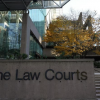There is one thing that many speakers do that they should never, ever do, and that’s apologize to their audience. Speakers apologize for a wide variety of reasons, and none are acceptable.
One is apologizing for not knowing you were going to speak until the night before and you feel unprepared. One wonders why you agreed to speak in the first place. Maybe you forgot or had the day wrong. Either way, you agreed to do the speech. Assuming you agreed to speak the night before, you could take a few moments to write down some notes, take an old speech and rework it, or Google some information to support your subject. Then do your very best. No one will notice you’re ill prepared. Apologizing for a lack of preparation damages any speaker’s credibility. You’ve just told your audience they aren’t important enough to prepare for.

Another is apologizing for someone introducing you incorrectly. Don’t apologize. First of all, you’re belittling the person who introduced you. Secondly, every speaker should prepare their own introduction and ensure their introducer knows how to say their name properly.
Yet another is begging forgiveness for poor slides or photos in a PowerPoint presentation. If they’re poor and unreadable, why are you using them in the first place? Your PowerPoint presentation is to support your awesome presentation; it should be equally fabulous.
If the room is too hot or too cold, or a background noise is making it hard for your audience to hear you, there is little you can do about it so don’t gush apologies about it. Do move closer to your audience so they can hear you better. Better yet, speak to the organizers before your presentation about changing the temperature or dealing with the noise before you begin.

One of the worst things you can apologize to your audience for is being nervous. They don’t know that you’re falling apart under that smooth veneer of confidence. They don’t know you tossed and turned the night before. Besides, every speaker is nervous to some degree. It just means you care. Audiences are generally forgiving, especially if they note that the speaker is showing some nervousness. If you don’t apologize for being nervous and do your very best, your audience will be inwardly cheering for you.
Other apologies include forgetting something or leaving out a whole paragraph of your speech. No need to apologize to the audience, they have no idea what you’ve left out. If you’ve lost your place, repeat your last sentence for emphasis, pause, find your place, and then carry on.
We’re so used to apologizing for getting in people’s way, interrupting someone, forgetting something, and a host of other reasons; we feel a need to apologize for errors in speaking. You may gain forgiveness in the first set of circumstances, but apologizing for something in a speech yields nothing.
Even if you are sorry, never use “I’m sorry”, or “I apologize” during a presentation. Contrary to belief, the audience will like you better for “soldiering on”.
 Mary Anthes is a business owner, speaker and a Distinguished Toastmaster. She can be reached at nmanthes@shaw.ca.
Mary Anthes is a business owner, speaker and a Distinguished Toastmaster. She can be reached at nmanthes@shaw.ca.
















